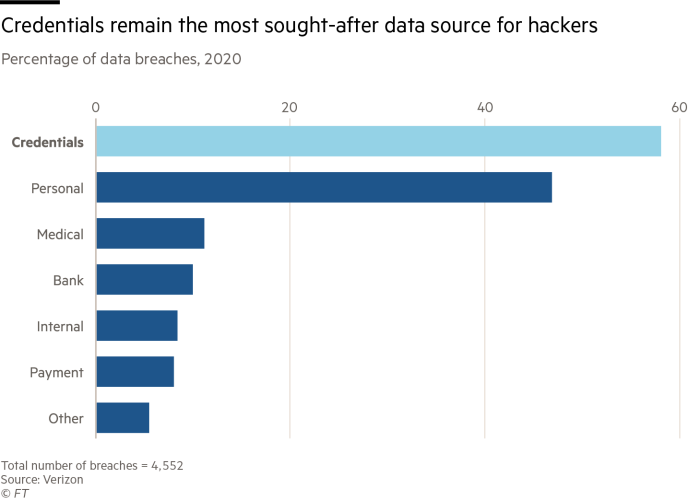Apple’s Labor Day delays
Technology sector updates
Sign up to myFT Daily Digest to be the first to know about Technology sector news.
This article is an on-site version of our #techFT newsletter. Sign up here to get the complete newsletter sent straight to your inbox every weekday
The eve of the Labor Day weekend in the US is becoming a good day to bury bad privacy decisions for Apple.
In 2020, it chose September 3 to announce a delay to the rollout of new privacy rules that required apps to get users’ permissions, via pop-up windows in the new iOS 14, before gathering data that allowed tracking and ad targeting. Developers had complained they had not had enough time to react, while Facebook warned the changes could halve some app makers’ ad revenues. “We want to give developers the time they need to make the necessary changes,” said Apple on the delay.
This year, a fierce backlash from privacy campaigners appears to be behind the delay announced today to the rollout of tools to detect images on iPhones of child pornography and sex abuse, writes Tim Bradshaw.
“Last month we announced plans for features intended to help protect children from predators who use communication tools to recruit and exploit them, and limit the spread of Child Sexual Abuse Material,” Apple said on Friday.
“Based on feedback from customers, advocacy groups, researchers and others, we have decided to take additional time over the coming months to collect input and make improvements before releasing these critically important child safety features.”
The roll out was due later this year after the release of its iOS 15 operating system, but Apple has failed to convince its critics that it has taken sufficient steps to protect users from their personal data being scanned for other purposes.
Like the developer storm a year ago, Apple has again mishandled how it makes costly and controversial changes, giving the impression it is out of touch with its ecosystem and the wider world. Its lack of proper communication and full consultations will do nothing to change the views of opponents that it has become too powerful and high-handed in its actions.
The Internet of (Five) Things
1. Apple probed over ‘hostile work environment’
The US National Labor Relations Board is looking into allegations that Apple retaliated against a senior engineer who had accused it of permitting a hostile work environment. Ashley Gjovik, a senior engineering program manager who joined Apple in 2015, filed a “Charge against Employer” last week describing 13 instances of alleged retaliation including workplace harassment, job reassignment and reduction of supervisory responsibilities
2. FAA grounds Virgin Galactic fleet
The US Federal Aviation Administration has grounded Virgin Galactic’s fleet and launched an investigation after learning that the vehicle that carried Richard Branson into space in July veered beyond its designated airspace for nearly two minutes.
Daily newsletter

#techFT brings you news, comment and analysis on the big companies, technologies and issues shaping this fastest moving of sectors from specialists based around the world. Click here to get #techFT in your inbox.
3. Foxconn’s iPhone on wheels
The world’s largest contract consumer electronics manufacturer and the biggest supplier to Apple has long dreamt of building cars. “If we can make iPhones, why can’t we make EVs [electric vehicles]? It is an iPhone with four wheels,” Foxconn founder and former chair Terry Gou told internal meetings more than once, according to this Nikkei Asia analysis of its growing automotive business.
4. Buy now, pay never?
As the red-hot ‘Buy Now, Pay Later” sector signs deals with retailers, it is also reporting losses. Some customers are behind on their loans. In cryptocurrencies, Gillian Tett writes about Project Dunbar, a cross-border central bank digital currency system. Lex says commercial banks can be forgiven for feeling alarmed about the experiment.
5. The start-ups trying to kill the password
The average person has to remember between 70 and 80 passwords, creating a race to replace the password, with biometric security emerging as a sought-after solution. The greatest obstacle, however, is changing habits, reports Hannah Murphy.

Tech tools — Philips Hue + Spotify
Pulsing lights matching the beats of the music are nothing new, but Philips Hue this week came up with a sophisticated integration of its smart LED lights with Spotify. Existing third-party apps that enable this rely on the app being on in the foreground with a smartphone’s microphone picking up the music. This drains batteries and means there is inevitably a lag created as the app is reacting to music already played.
The new Hue link up with Spotify happens in the cloud with the lighting changes dictated by “light scripts” based on time-stamped metadata in the chosen music. There is information available on loudness, pitch, timbre and beats that mean light scripts can be created to tell the story of an entire song in shifting colours and intensities. Different lights are directed from the script streamed to the Hue bridge attached to your home router. The free feature has begun rolling out among Philips Hue App 4 users since September 1.
